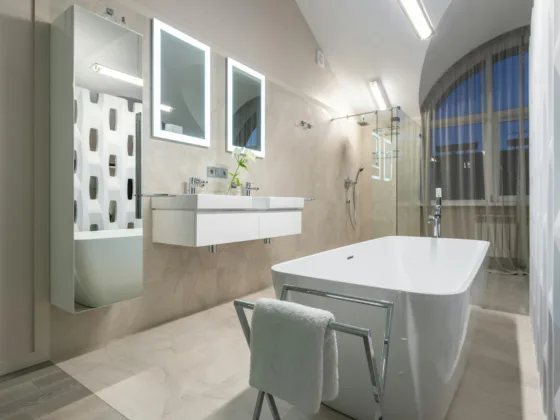Table of Contents Show
The bathroom can be a difficult place to navigate for anyone who may struggle with balance, stability or any form of disability, even old age can affect the way a user can use the bathroom.
Many products and aids exist to ensure that everyone, regardless of these handicaps can comfortably and safely maneuver the bathroom independently.
Showering can pose a lot of risks to those who are disabled or elderly – the slippery surface often makes remaining stable a difficult task, and standing for long periods of time while completing important daily hygiene tasks can even be an issue for some.
Shower seating is an excellent addition to any bathroom, to ensure that everyone can utilize the space independently.

There are many options to choose from, each of them catering to a different set of needs. In this article, we will give you an understanding of your options, and which option would be best suited to your needs.
Types of Shower Seating:
Read Also:
- Seats with Back Support also known as a shower chair, are an excellent option.
The form of the aid is familiar, and generally, this means that if the user can usually sit in a chair unassisted, then they will be able to use this aid unassisted.
This option is exactly like a normal chair, the only difference is the materials are obviously optimized for wet areas.
The back support provides comfort, and safety – ensuring the user does not slip backward while using the aid.
- Bathroom Stools are extremely versatile.
They allow the user to remain seated while using the shower and often come with the ability to adjust the height.
This means that the user can customize their experience with the support aid. The advantage of having a backless design is that the user can use the seat however they choose.
A wooden corner stool is often able to be used in both showers and bathtubs if your user often engages in both types of bathing.
- Rotating Bath Stools allow for the user to easily move around the shower cubicle to reach different products and areas of their bodies.
This aid is often a great choice for users who suffer from any form of mobility restriction, this could include joint pain or a recent injury that has resulted in them having a difficult time moving a lot.
- Wall Mounted Shower Seats are a convenient option for users who may share the bathroom with non-vulnerable users.
Wall-mounted options can usually fold away and become relatively flush with the wall, providing more space for users who do not need the chair, but the convenience of having it there for the users who do need it.
- Shower Seating with a Cutout often allows for an easier cleaning experience. If the intended user of the aid can support themselves with the cut-out being present, this option is excellent.
It will allow the user to reach areas of their bodies that may not otherwise be able to be reached while maintaining stability independently.
What to Consider Before Purchasing Shower Seating:
What Are the Needs of the User?
This is the first question that should be asked before purchasing any disability or elderly support aid. Different needs require different solutions.
If an individual struggles primarily with mobility issues, a rotating stool may be best suited toward them, however, if a user struggles with stability, perhaps a seat with back support would help them the most.
If you aren’t quite sure what aid would best suit the needs of your user – consulting with a care or support coordination provider could be necessary.
Does the User Share This Space?
Oftentimes, a vulnerable individual will not be living alone, meaning that others using the bathroom space may not benefit from an independent living aid.
This means that it is worthwhile considering an aid that is easily removable or hidden.
Wall-mounted seats, while being able to fold away, are a relatively permanent solution, whereas a regular stool or seat can be removed from the area when not in use.
What Will the Current Shower Space Allow?
Seating can be quite bulky sometimes, so knowing the space that you have in the shower, and the size of your required aid is essential.
You need to allow room for the user to stand in the shower, and comfortably maneuver themselves around the shower so that they may be eventually in a comfortable seated position.
Your space may require an aid that folds away to save space.
Who Should Consider Purchasing Shower Seating?
- Someone with mobility restrictions.
- Someone with joint/muscle pain.
- Someone who struggles to stabilize themselves.
- Someone with chronic pain.
- Someone who could seriously injure themselves in the case of a slip.









